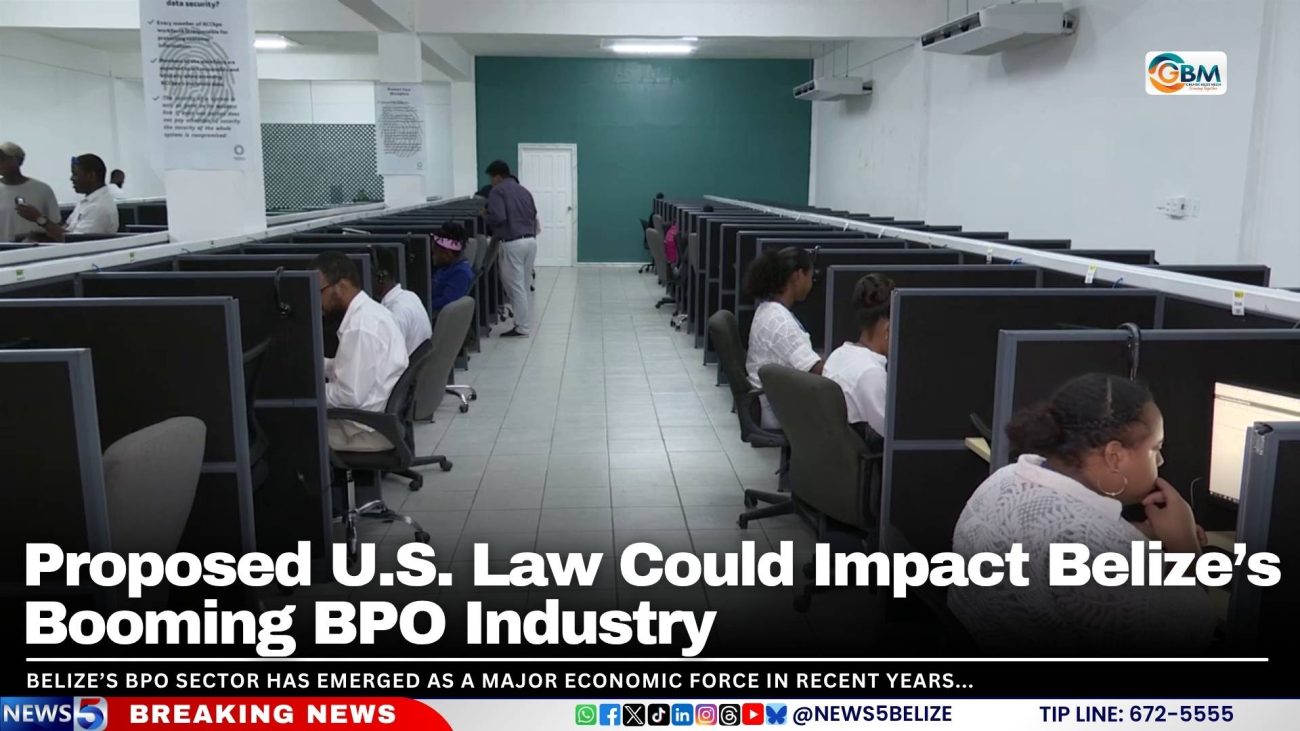Proposed U.S. Law Could Impact Belize’s Booming BPO Industry
A new bill before the U.S. Senate, the Keep Call Centres in America Act of 2025, could have far-reaching consequences for Belize’s fast-growing Business Process Outsourcing (BPO) sector. Sponsored by Senators Ruben Gallego (D-AZ) and Jim Justice (R-WV), the legislation aims to curb the outsourcing of call centre jobs overseas by introducing strict rules and penalties for U.S. companies that relocate such operations. The bill would require businesses to notify the U.S. Department of Labour at least 120 days before moving call centre work abroad, maintain a public list of companies that have done so, and make those companies ineligible for new federal grants and loans. It would also mandate that all call centre work for federal contracts be performed in the United States and require agents to disclose their location and use of artificial intelligence to customers.
Belize’s BPO sector has emerged as a major economic force in recent years, employing more than 16,000 people and paying out roughly US$150 million in annual salaries. The industry’s rapid growth has been fuelled by Belize’s English-speaking workforce, cost savings of up to 60% for clients, favourable time zones, and strong cultural alignment with North America.
Major operators have continued to expand, some opening facilities that create hundreds of new jobs, serving U.S. and Canadian companies in customer service, technical support, data entry, and other services. However, the proposed U.S. legislation could dampen future growth if American companies face restrictions or penalties for outsourcing to Belize, especially those holding U.S. government contracts.
Industry observers warn that the bill, if passed, could prompt U.S.-based clients to scale back or halt offshore operations to avoid losing federal funding, potentially slowing job creation in Belize’s BPO sector. This may push Belize to diversify its client base beyond the U.S., expand into new service areas, and strengthen workforce training to remain competitive in a shifting global market.






Facebook Comments